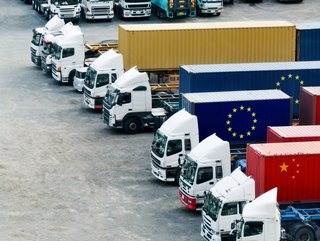McKinsey: Solid Supply Chains no Longer Giving EU the Edge

Europe can no longer rely on robust supply chains as a source of competitive strength, a McKinsey study concludes.
The report contends that Europe’s competitive strength has traditionally been its robust supply chains, along with industrial excellence, continuous innovation, a skilled workforce, affordable energy, and the wide availability of capital.
However, its report – Accelerating Europe: Competitiveness for a New Era – says that the region must “re-energise”, or face losing its status as a global leader on sustainability and inclusion.
Europe’s advantages are starting to wane, McKinsey warns, and lists seven “new fragilities” that it needs to address, including: weakening supply chains; lack of investment in next-gen technology such as AI; reliance on imported energy, particularly from Russia; rising cost of capital; the need to transition the workforce to new economies and technologies; continued fragmentation of Europe’s economy; and the ongoing trade wars across the globe.
The report says that these priority areas “will likely define European competitiveness in the new era”.
McKinsey estimates that up to €1 trillion of value-added could be at stake annually by 2030 unless Europe addresses these issues.
The report adds: “To safeguard future growth and prosperity – as well as the unrivalled sustainability and inclusion delivered thus far – Europe cannot afford to risk losing ground.”
McKinsey supply chain recommendation for EU
It makes a series of recommendations for Europe to follow but warns solutions will “require an integrated agenda built on more ambitious goals.
McKinsey adds: “It will also require public and private leaders to make strategic choices and weigh some difficult trade-offs.
“There is always a cost involved in achieving bold goals, whether in capital, risk or what else may be deprioritised.
“Corporate Europe needs to play its part and look beyond company and sector boundaries, working hand-in-hand with policymakers to agree upon and then reach those goals.
The challenge for Europe is to use this testing moment to act decisively, as it has done in crises of the past.”
On supply chain, McKinsey advises European nations that they have to “diversify toward a resilient global supplier base and unlock new domestic sources”.
Europe, it says, needs to work harder to ensure access to a secure and sustainable supply of strategically important materials. Such a move, it points out, “could involve complex trade-offs”.
It adds: “One approach could be to further diversify global suppliers, although this requires acting with caution if they are from markets that are not geopolitically aligned.
“Another option is to unearth new domestic supply, but environmental concerns surround the extraction of some critical minerals such as lithium, cobalt, and graphite.”
It did note, though, that EU policy-makers have taken action to strengthen supply chains, with its Global Gateway Initiative that is designed to bolster economic relationships with trade partners, particularly those supplying essential materials.
It added that the Critical Raw Materials Act of 2023 also provided a framework to ensure that, by 2030, at least 10% of the EU’s annual consumption of such materials will be extracted domestically.






